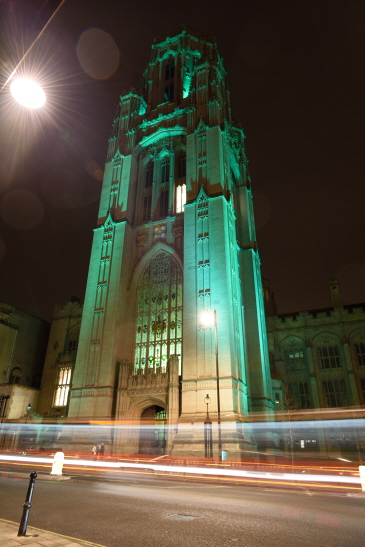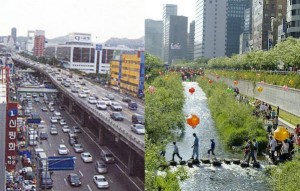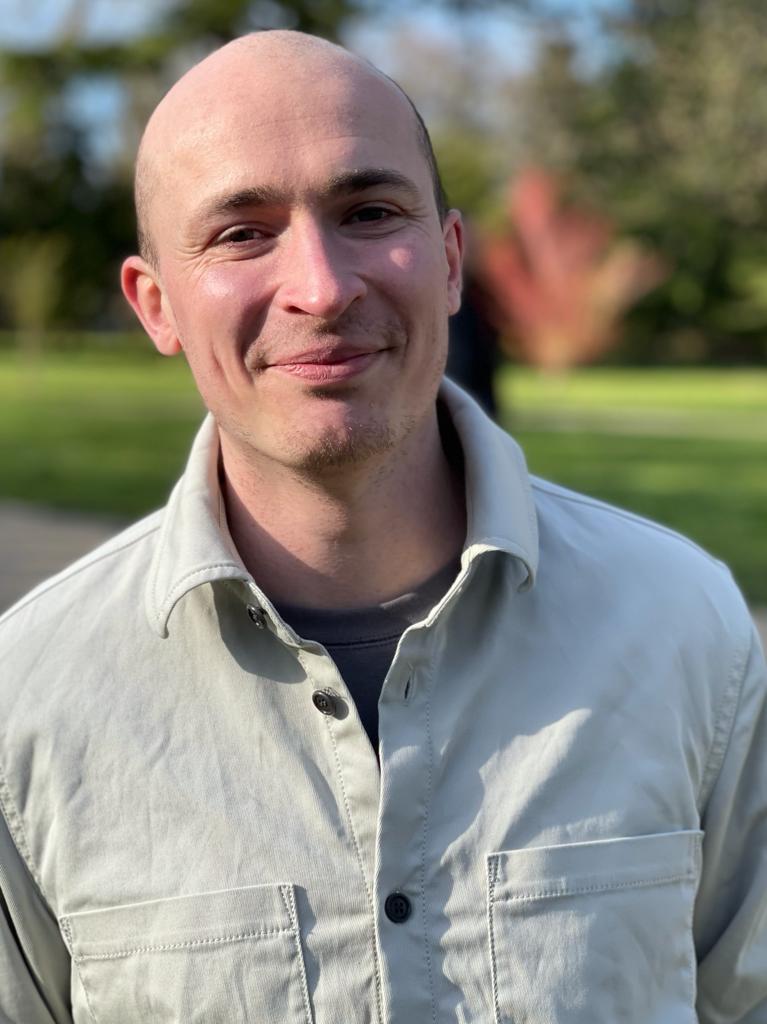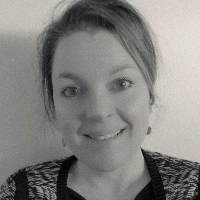Launching VENTURE during Bristol 2015
VENTURE is a new collaborative partnership with some of our major corporate partners. It is the latest in a series of announcements (including Bristol is Open, the UK Collaboration for Research and Infrastructure and Cities, and the launch of a new project on Re-Distributed Manufacturing and the Resilient, Sustainable City) that represent a step change in how we are engaging with the city and region during 2015. In my previous article, I discussed the ethos that underpins our drive to build partnerships – across the city, the region, national and globally. In this follow-up, I want to share some of the very exciting activities that are currently happening, many of them catalysed by the efforts to win the European Green Capital award.
**********
For the Cabot Institute, one of the great opportunities of Bristol 2015 has been a stronger relationship with organisations across the city. Many of our 2015 activities are the culmination of our past partnership ambitions, but it is also the opportunity to make a step change towards broader and deeper collaboration.
The nature of our University and the Cabot Institute and the scope of global environmental challenges has always dictated diverse partnerships with national and international agencies – we study melting ice sheets with the British Antarctic Survey, develop climate models with the Met Office, predict floods with the Environment Agency and advise the Government Office of Science on the ash cloud crisis. We work with DFID and the United Nations, with the Somalian government to develop grassroots security and with small island developing nations to help them adapt to climate change – and to learn from their experiences.
Working globally never stopped Cabot Institute researchers from also working locally; we have collaboratively studied housing and education in our city, partnered on new innovations such as Bristol Green Doors, worked with Voscur on equality issues and with the Knowle West Media Centre on numerous digital engagement projects.
And yet we could have been doing so much more….
Our commitment to the Green Capital arose from a recognition that we could do more and that we had to do more if we wanted to learn from the vibrant experimentation occurring in our own backyard. To that end, the Cabot Institute Manager, Philippa Bayley was an early member of the Bristol Green Capital Partnership and was elected with Liz Zeidler to be the first co-director after the award.
 |
The Wills Memorial Building, which
will be lit green in the evening throughout 2015 |
Since then, we have put on numerous events, worked with the 2015 Company on the launch and with the Festival of Ideas on the Coleridge Lectures and the Summits, and contributed to the Arts Programme. Moving ahead, we are keen to include all of the city, with events planned at Hamilton House and with local schools. That engagement has mirrored the University’s pledges and contributions. We are aiming to become a net carbon neutral campus by 2030; bringing in a series of working practice incentives to decrease our transport footprint; including social and environmental considerations into our procurement process; and ensuring that all students have the opportunity to encounter Education for Sustainable Development at the University. We are doing far more than just turning Wills Memorial Tower green for the year!
So this year is a culmination of ever-growing engagement over the past decade…. Not just for the researchers of the Cabot Institute but for the whole city. But more importantly, it is the platform for newer and much deeper partnership.
Implicitly, the University’s fifth and most important pledge is to be the best possible partner with our city. That includes our students who have committed 100,000 volunteer hours to the City and who are driving new initiatives such as BrisBikes. It includes our commitment to spend £60,000 pounds to plant trees across Bristol. It includes working with BCC and the NHS to create a new district energy supply, key to realizing our carbon neutral ambitions. And it includes a commitment from the Cabot Institute to do more coordinated research – with everyone in the city.
To empower that, we have launched VENTURE and we have worked very closely with the Partnership. We have also aggressively appointed new people: Andy Gouldson, who studies urban resiliency and sustainability; Clive Sabel, who uses big data to study health and well-being; Sean Fox, who investigates urban governance; a whole swathe of experts on flooding and water quality in both urban and rural environments; Justin Dillon, the new head of our School of Education and who is passionate about ‘learning outside the classroom’; and many, many more. These people have been hired because they are brilliant and because they are keen to work with people in the city and region.
 |
Wildflower meadow in Bedminster.
Image credit: Julia Kole |
We are also funding our research students and colleagues to work with our City. Caroline Bird has been supported to work with the Bristol Energy Network and is now coordinating our community to better engage with the Green Capital legacy. We have asked many of you across the city to propose projects for our brilliant Masters Students, yielding great projects conducted by students like Julia Kole who studied how to improve biodiversity in Bedminster; seeds soil and social change. Dr Kath Baldock and Professor Jane Memmott and many others have been studying pollinators in Bristol and the surrounding countryside – which has led to the Urban Pollinators Project and Get Bristol Buzzing. Dr Trevor Thompson and his team are working with local GPs, to help their practices become more efficient and sustainable.
These are all part of an ongoing and continuous buzz of activity and we will work hard to ensure that these are not just one-off successes but instead a step change in how we work with Bristol.
Big new initiatives
On the 27th of January, we launched Bristol is Open with the Bristol City Council. This is the first joint venture between the city council and the University of Bristol and it combines University research and advanced technology (our investment in high performance computing, computational innovations by Professor Dimitra Simeonidou and wireless technology developed by Professor Andy Nix and industry collaborators) with council-owned infrastructure. The company will develop an innovative high-performance, high-speed network in Bristol, that will be open for all to use and put Bristol at the forefront in the UK. It is a bold experiment not just in technology but hopefully in democracy, insofar that it empowers the citizens of the city to communicate with one another and explore the urban landscape. (And if you want to know more, visit the refurbished and re-opened Planetarium!)
More recently, the government announced funding for the UK Collaboration for Research and Infrastructure and Cities (UKCRIC), and a partnership between the University, Bristol industry and the City Council is at the heart of that. UKCRIC will apply globally important research to ensure that the UK’s infrastructure is resilient and responsive to environmental and economic impacts. In doing so, according to Prof Colin Taylor, the Bristol UKCRIC lead, ‘It will ensure that our infrastructure is resilient to future change while also avoiding conservative over-engineering thereby saving hundreds of billions of pounds.’ At the heart of the Cabot Institute’s contribution to the bid is the University’s Earthquake Engineering and Simulation Laboratory in the Faculty of Engineering. Via enhanced world-leading experimental capabilities, the Laboratory will develop unique techniques to improve the performance and reduce the costs of foundations of buildings, bridges, ports and nuclear facilities. UKCRIC will also ensure that our innovative City Operating System is funded and fully capable of supporting Bristol is Open.
On 22 April we launched a new collaborative research project to determine how highly adaptable manufacturing processes, capable of operating at small scales (re-distributed manufacturing), can contribute to a sustainable and resilient future for the City of Bristol and its hinterland. I am particularly excited about this project as it is so fundamentally…. Bristol. Our city is a champion of the power of localism, whether it be food production, launching our own energy company or the Bristol Pound. And we have a strong upcycling and maker culture. Why not extend these brilliant initiatives to how we manufacture the goods on which we depend. New technology now allows manufacturing to be downscaled, redistributed and decentralised, making it more sustainable and also more resilient. This new project, led by Prof Chris McMahon, will explore exactly how to do that.
These are exciting times and we are proud of our Cabot Institute colleagues working on these projects. But we do recognised that there remain challenges. As a climate change scientist, I have always argued that many of the sustainability and resilience challenges that Bristol wants to address are issues of fairness and equality. Those who profit from our current fossil fuel, water, nutrient, and wildlife consumption are least vulnerable to climate change and diminishing resources. As such, racial, ethnic, gender and class diversity is also high on our agenda and our partners must reflect that diversity. Fortunately, we are based in a city with an outstanding variety of leaders. The City and University recognise that we have a long way to go, but there is no lack of energy and wisdom.
We are not even halfway through 2015, but I think that Bristol is in the midst of building something from its historic strengths to create something new and position it as a model of global leadership. For me, personally, the year has been exhilarating. I love Bristol and have done so since arriving 15 years ago and attending my first Ashton Court Festival; and I have always known of the innovative creatives and social enterprises that thrive here. But I have not had the opportunity to partner with them – my own research tends to take me to distant lands and eons into the past, as far away from Bristol you can go and still be on our planet! But this year, I have finally engaged with them – with you – in a professional context and the ideas and wisdom have exceeded all of my expectations. The Cabot Institute would strive to build partnerships no matter what City it called home; fortunately, we are in Bristol and the partnerships are opening up opportunities that you could not find anywhere else in the world.
———————————
















